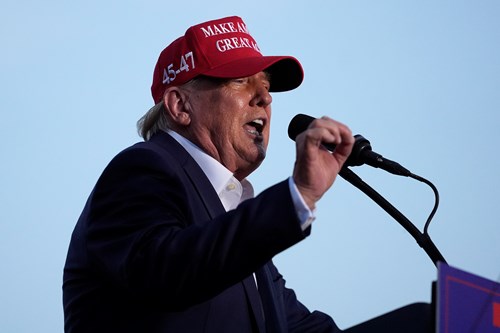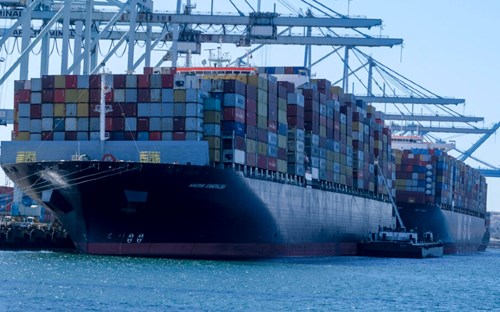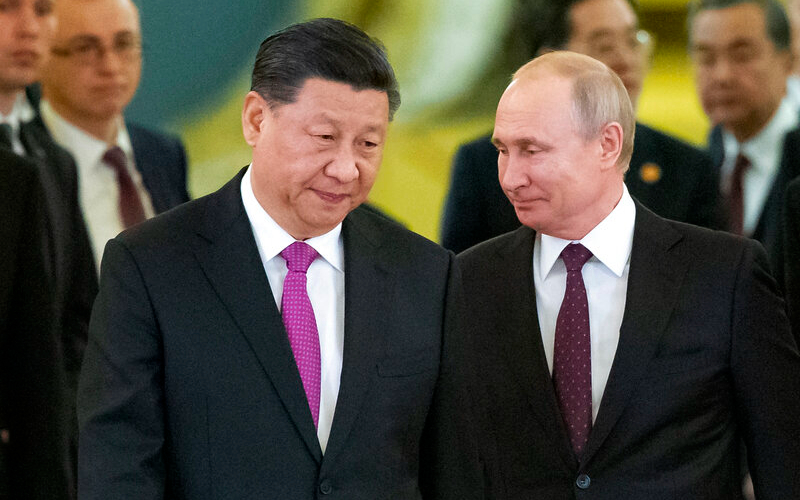President Joe Biden, preparing to meet one final time with his China counterpart Xi Jinping Saturday in Peru, has long been accused by critics of being too close to China.
The House Oversight Committee last November released a video and bank records that lawmakers say show that Biden received a $40,000 payment in 2017 that came from a Chinese energy company.
Biden received the payment in the form of a personal check that called it a “loan repayment." It was written from the personal account of his brother, James Biden.
 The House Oversight Committee in May of 2023 presented evidence of a multi-million-dollar scheme involving fake companies and foreign nationals that members said enriched nine members of Joe Biden’s family.
The House Oversight Committee in May of 2023 presented evidence of a multi-million-dollar scheme involving fake companies and foreign nationals that members said enriched nine members of Joe Biden’s family.
Now the days of China’s influence in American politics will be severely curtailed, Gordon Chang said on Washington Watch Wednesday.
Trump has said he’ll impose 10-20% across-the-board tariffs on imports into the United States as well as an additional 60% tariff on imports from China.
It’s a move that could cripple the Chinese economy and is already having an impact, Chang told show host Tony Perkins.

The Chinese economy is “not growing at the 4.6% pace that they claimed for the third quarter. It may not even be growing at all, but even if it were growing at 4.6%, it's not growing fast enough to pay back Chinese debt. Right now, China's having its 2008 downturn,” Chang said.
Those Trump tariffs can’t be put in place before he takes office in late January, but the Chinese are already preparing for them.
“Even before Trump takes the oath of office, China is driving down the value of its currency in anticipation of those Trump tariffs. In other words, China's already paying for Trump's tariffs,” Chang said.
Not first go-round for Trump tariffs
There’s precedent to show that Trump means business when he says he’ll impose tariffs on China. During his first term, in 2018, Trump announced tariffs on up to $60 billion worth of imports with a 25% tariff on certain products.
Chang said the idea that the costs of tariffs are passed on to U.S. consumers, which is a common argument, is a false narrative.
“You get a lot of experts in New York and Washington to say, ‘Oh, the American people will pay those tariffs.' The 2018 tariffs that President Trump imposed, we know that China picked up 75 to 81% of the cost of it. They absorbed the cost of those tariffs because they needed continued access to the U.S. market. Right now, China needs our market more than they did in 2018. So, I think we're going to see this (again),” he said.
Tariffs may not be Trump’s only plan to attack China economically. He has also stated that China should pay $60 trillion in “reparations” for the COVID pandemic.
 "I think the origins are so obvious," said Trump during an interview with Maria Bartiromo on Fox News in 2021. “They came out of the Wuhan lab. And I think if anybody thinks anything differently, they’re just kidding themselves. So, you can ask — China has to pay. They have to do something. They have to pay reparations."
"I think the origins are so obvious," said Trump during an interview with Maria Bartiromo on Fox News in 2021. “They came out of the Wuhan lab. And I think if anybody thinks anything differently, they’re just kidding themselves. So, you can ask — China has to pay. They have to do something. They have to pay reparations."
Trump did not specifically mention reparations during the 2024 campaign, however, and it's unlikely China would ever admit to the lab leak.
Another effect of the Trump squeeze on China appears to be a loss of manufacturing jobs for China.
Executives for Steve Madden, the popular producer of women’s footwear and accessories, announced two days after the election it plans to cut its production in China by 45%, Fox News reported.
Almost half of Steve Madden’s current business in China will be subject to tariffs if Trump follows through, Reuters reported.
“Other companies are going to have to do the same because they see those tariffs, and they know that they cannot access the U. S. market if those tariffs are in place,” Chang said.
Trump has also raised the possibility of imposing a 200% tariff on vehicles produced in Mexico, Fox reported.
China’s job loss could be gain for U.S.
Manufacturing jobs fleeing China is good news for the U.S., Chang said, even if those jobs don’t land in the U.S.
Vehicles from Mexico could be subject to tariffs, but other products may not be. If those jobs land somewhere in Central America, it could have a positive effect on the U.S. southern border.
The trickle-down effect would be a net gain for the climate, Chang said, because the amount of goods placed on cargo ships and sailing through the oceans would be greatly reduced.
“If we put jobs into our hemisphere, we stabilize Central America. That means no more migration through Mexico to the southern border. You create jobs down there; you create stable relationships. You create families. All sorts of good things happen,” Chang said.







